
Penama Province: The Heartbeat of Vanuatu's Natural Beauty
Penama Province in Vanuatu is a paradise waiting to be discovered. Nestled in the Pacific Ocean, this province is made up of the islands of Pentecost, Ambae, and Maewo. Each of these islands offers a unique blend of natural beauty, rich culture, and warm hospitality. Pentecost Island is famous for its land diving tradition, which is an incredible spectacle of bravery and skill. This centuries-old ritual involves men jumping from wooden towers with vines tied to their ankles. The best time to witness this awe-inspiring event is between April and June. Ambae Island is often referred to as the 'Island of Paradise.' It is known for its lush landscapes and the majestic Mount Lombenben, an active volcano. Hiking enthusiasts will find the trek to the volcano's summit both challenging and rewarding, offering panoramic views of the island and beyond. Maewo Island is renowned for its stunning waterfalls and freshwater pools. The island is perfect for those looking to unwind and reconnect with nature. The natural beauty of Maewo is complemented by the friendliness of its inhabitants, who are always eager to share their culture and traditions with visitors.
Local tips in Penama Province
- Visit Pentecost Island between April and June to witness the traditional land diving ceremony.
- Hire a local guide for the hike to Mount Lombenben on Ambae Island for a safer and more informative experience.
- Don't miss the waterfalls on Maewo Island; they're best visited after a light rain when the water flow is optimal.
- Bring insect repellent and sun protection, as the tropical climate can be intense.
- Learn a few basic phrases in Bislama, the local language, to enhance your interactions with the friendly locals.
- Respect the local customs and traditions, especially when visiting villages or attending cultural ceremonies.
Penama Province: The Heartbeat of Vanuatu's Natural Beauty
Penama Province in Vanuatu is a paradise waiting to be discovered. Nestled in the Pacific Ocean, this province is made up of the islands of Pentecost, Ambae, and Maewo. Each of these islands offers a unique blend of natural beauty, rich culture, and warm hospitality. Pentecost Island is famous for its land diving tradition, which is an incredible spectacle of bravery and skill. This centuries-old ritual involves men jumping from wooden towers with vines tied to their ankles. The best time to witness this awe-inspiring event is between April and June. Ambae Island is often referred to as the 'Island of Paradise.' It is known for its lush landscapes and the majestic Mount Lombenben, an active volcano. Hiking enthusiasts will find the trek to the volcano's summit both challenging and rewarding, offering panoramic views of the island and beyond. Maewo Island is renowned for its stunning waterfalls and freshwater pools. The island is perfect for those looking to unwind and reconnect with nature. The natural beauty of Maewo is complemented by the friendliness of its inhabitants, who are always eager to share their culture and traditions with visitors.
When is the best time to go to Penama Province?
Iconic landmarks you can’t miss
Nanda Blue Hole
Explore the serene beauty of Nanda Blue Hole in Vanuatu, a captivating destination for relaxation, swimming, and adventure amidst tropical paradise.
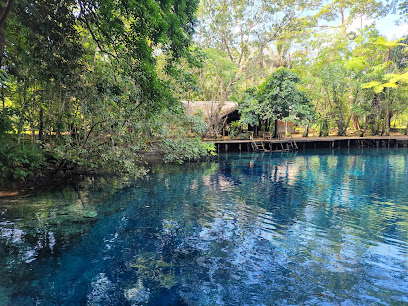
Matevulu Blue Hole
Explore the stunning beauty of Matevulu Blue Hole, a natural oasis perfect for swimming, snorkeling, and relaxation in Vanuatu's lush landscape.
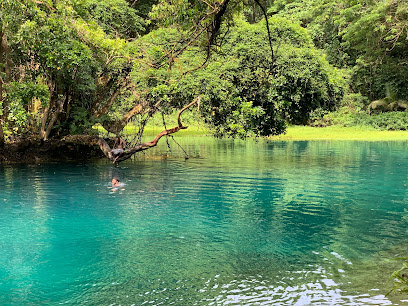
Million Dollar Point
Experience the mesmerizing underwater world of Million Dollar Point, where history and marine life collide in the heart of Vanuatu.
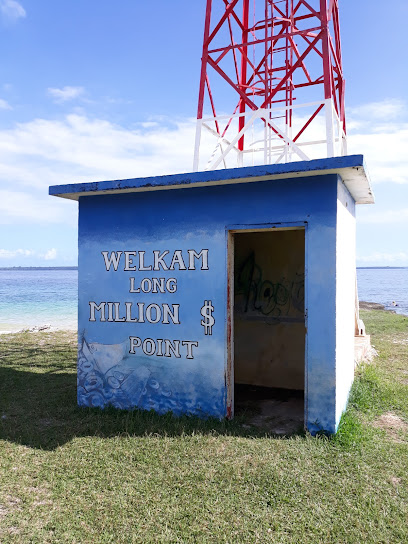
Freshwater Plantation - Aore Island
Experience the beauty and flavors of Vanuatu at Freshwater Plantation on Aore Island - a unique farmstay and dining destination nestled in nature's paradise.
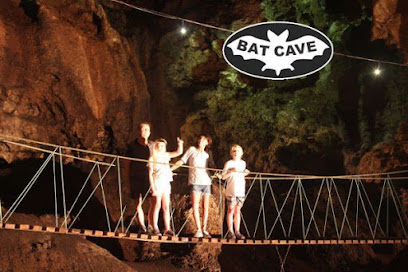
Pentecost
Explore the natural beauty and rich culture of Pentecost Island in Vanuatu, a tropical paradise with vibrant traditions and stunning landscapes.
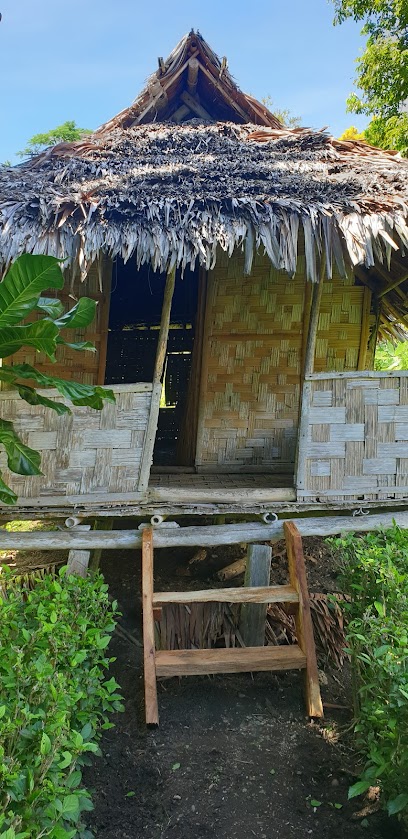
Ambae
Explore the lush landscapes and rich cultural heritage of Ambae Island, Vanuatu - a hidden gem for nature lovers and adventure seekers alike.
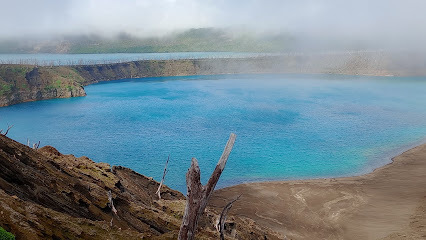
Unmissable attractions to see
Asanvari Yacht Club
Discover the breathtaking beauty of Asanvari Yacht Club in Maewo, Vanuatu - a perfect blend of adventure, relaxation, and local culture.
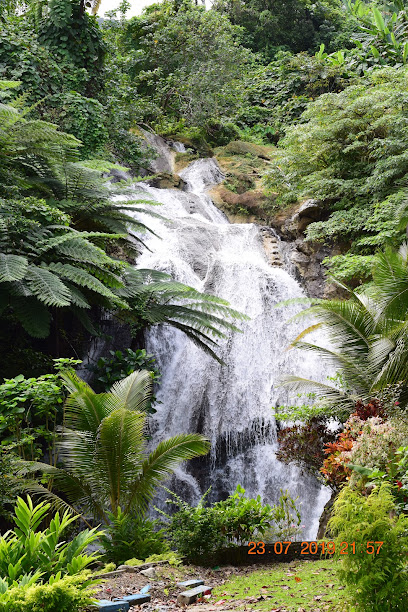
Naone Waterfall
Discover the enchanting Naone Waterfall in Vanuatu, where nature's beauty and tranquility create the perfect escape for travelers.
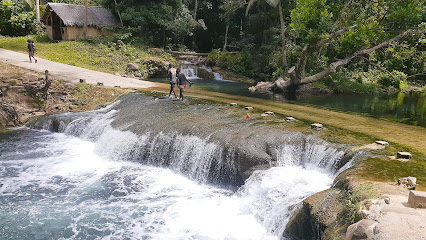
Grass Lake
Explore the tranquil beauty of Grass Lake in Vanuatu, a nature preserve perfect for relaxation, wildlife watching, and enjoying serene landscapes.

Essential places to dine
The Beach Bar
Experience family-friendly dining at The Beach Bar in Vanuatu - where delicious cuisine meets breathtaking ocean views.
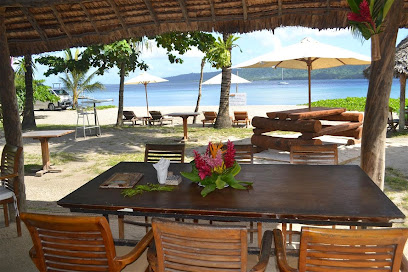
The Stonegrill Restaurant
Experience Vanuatu's culinary delights at The Stonegrill Restaurant in Port Vila - where you cook your own meal on volcanic stones.
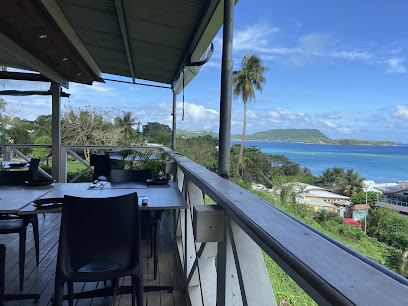
Rossi's
Discover Rossi's in Port Vila: A delightful restaurant offering breathtaking ocean views and delectable dishes perfect for every palate.
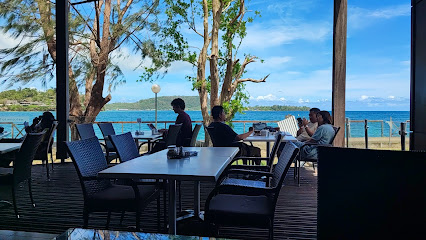
Reefers Restaurant & Rum Bar
Discover culinary bliss at Reefers Restaurant & Rum Bar in Port Vila, where local flavors meet an extensive rum selection amid breathtaking views.
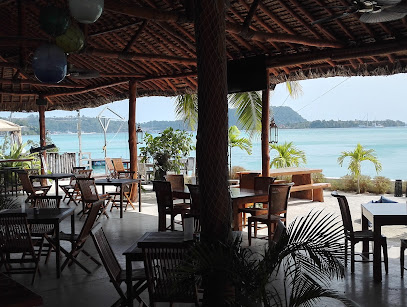
Cafe Vila
Discover Café Vila: A scenic restaurant offering exquisite local cuisine and breathtaking ocean views in Port Vila.
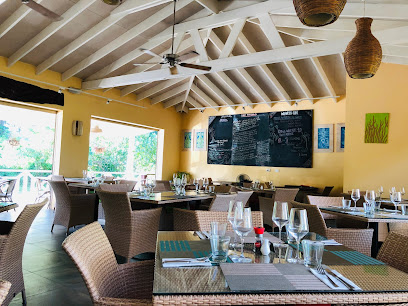
Kesorn‘s Exotic Thai Restaurant
Discover authentic Thai cuisine at Kesorn's Exotic Thai Restaurant in Port Vila - where every dish is an adventure for your taste buds.
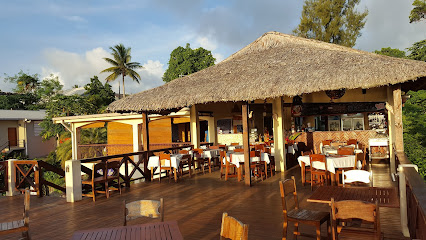
Pizza Hot AU Faré
Experience the best pizzas in Port Vila at Pizza Hot AU Faré—where fresh ingredients meet friendly service in a cozy atmosphere.
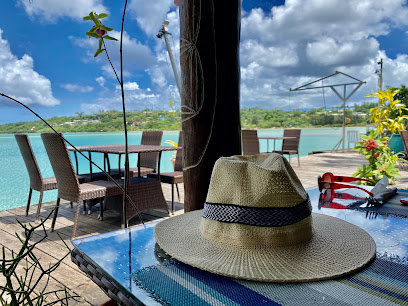
Pad Thai Port Vila
Experience authentic Thai cuisine at Pad Thai Port Vila with stunning seafront views – a culinary delight in Vanuatu.
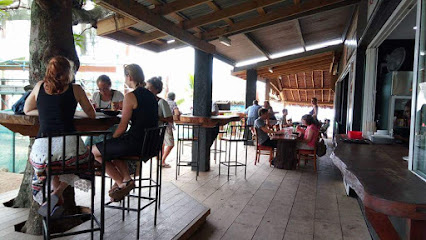
Three Pigs
Experience culinary bliss at Three Pigs in Vanuatu—home to delicious burgers, tacos, pizzas & refreshing drinks amidst tropical paradise.
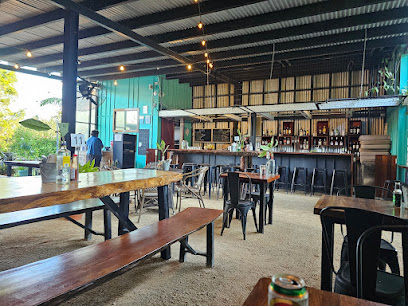
HARBOUR VIEW
Discover Harbour View: A must-visit restaurant in Port Vila offering stunning ocean views and delicious local cuisine.
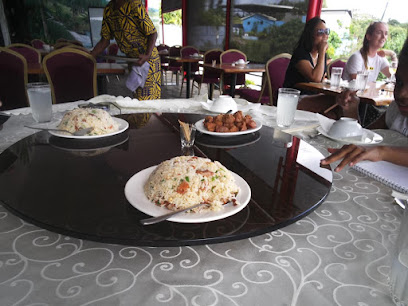
Chez Louis Restaurant
Experience exquisite seafood and breathtaking views at Chez Louis Restaurant on Vanuatu's beautiful Champagne Coast.
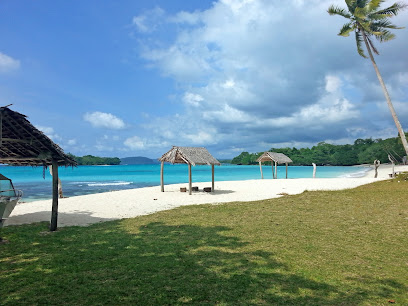
Chill Restaurant
Discover culinary bliss at Chill Restaurant in Port Vila - where local flavors meet tropical ambiance for an unforgettable dining experience.
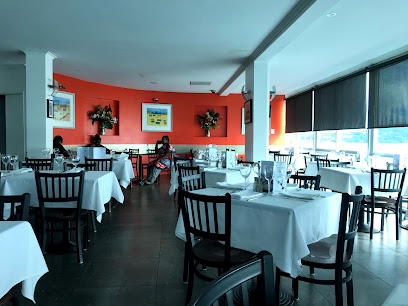
Umaiya by Padthai
Experience authentic Thai flavors at Umaiya by Padthai in Port Vila - a must-visit culinary destination for every traveler.
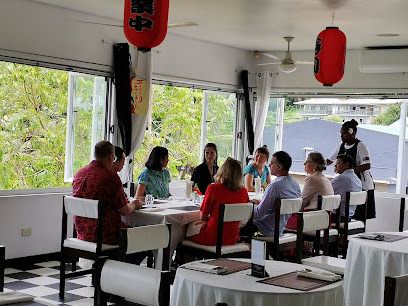
VAN Japanese Restaurant
Savor the flavors of Japan at VAN Japanese Restaurant in Port Vila - a must-visit destination for food lovers seeking authentic cuisine.
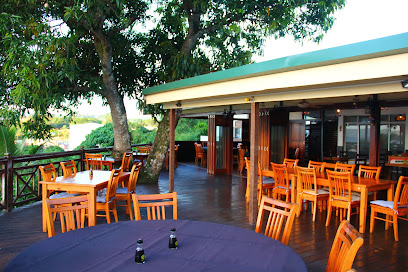
Ristorante Casa Mia
Experience authentic Italian cuisine at Ristorante Casa Mia in Port Vila—where every dish tells a story and every bite is a celebration.
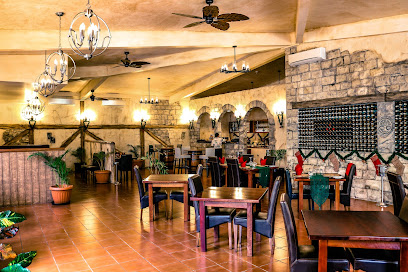
Markets, malls and hidden boutiques
Paris Shopping - Duty Free Vanuatu
Discover luxury and unbeatable prices at Paris Shopping - Duty Free Vanuatu, your ultimate shopping destination in Port Vila.
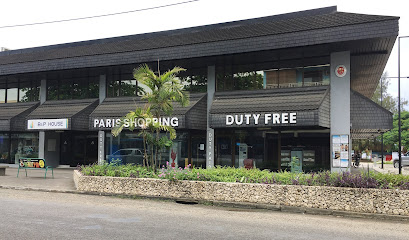
Pandanus Vanuatu Ltd
Explore a treasure trove of unique handbags, jewelry, shoes, and souvenirs at Pandanus Vanuatu Ltd in Port Vila, a gem for every traveler.
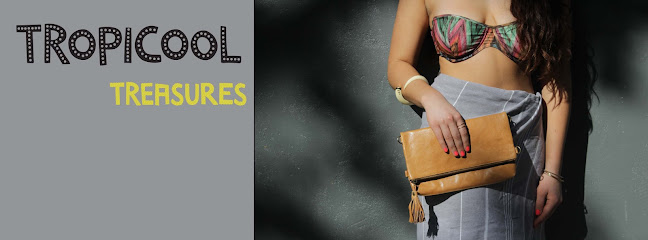
Tousi Cooperative Store
Experience the best of local shopping at Tousi Cooperative Store in Magam, where culture and craftsmanship come together.

Pekoa Airport Handicraft
Explore the rich cultural heritage of Vanuatu at Pekoa Airport Handicraft, where local artisans create unique, handcrafted treasures.

Tautu Shopping Center
Explore the vibrant Tautu Shopping Center in Norsup for local goods and daily essentials, capturing the essence of Vanuatu’s culture and community.
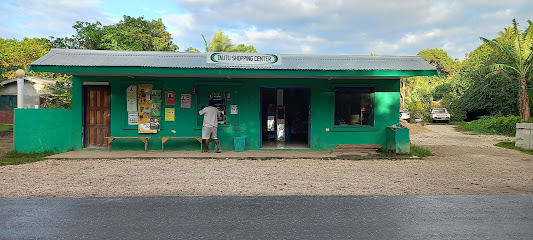
A-Hake Shopping Center
Experience the vibrant A-Hake Shopping Center in Ambae, where convenience meets local flavor, perfect for all your travel essentials.
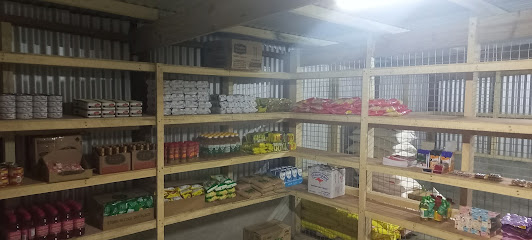
Malampa Butcher and Fish Market
Discover fresh local meats and seafood at Malampa Butcher and Fish Market in Lakatoro, a hub of culinary delights for every food lover.

Virelala Private Beach
Experience the serene beauty of Virelala Private Beach in Espiritu Santo, where adventure meets tranquility amidst stunning natural landscapes.

Malampa Handicraft Centre
Explore Vanuatu's vibrant culture through unique handicrafts at the Malampa Handicraft Centre in Lakatoro.

Lomaki Store
Experience the vibrant culture of Vanuatu at Lomaki Store, where local crafts and unique souvenirs await every traveler.

Vanambil Retail Shop
Experience the local culture and unique shopping at Vanambil Retail Shop in Baravet village, Port Vila - a hidden gem for every traveler.

Lemus store
Experience the heart of East Ambae at Lemus Store, your go-to general store for local products and unforgettable souvenirs.

Loltoi station
Explore the unique offerings of Loltoi Station, a delightful home goods store in Pentecost, showcasing local craftsmanship and vibrant culture.
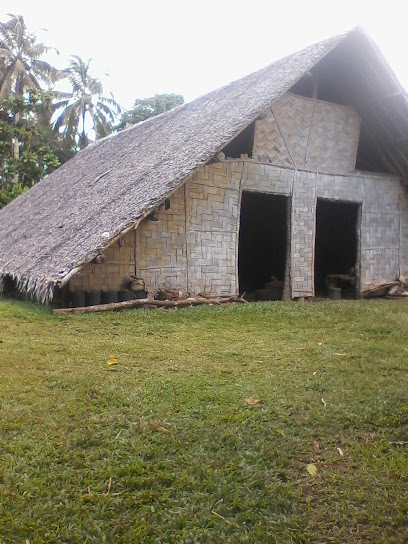
Fanbaky Store
Experience the vibrant culture of Vanuatu at Fanbaky Store, a unique shopping destination in Faramsu offering local crafts and souvenirs.

Buluiana Cooperative Society Limited
Discover the vibrant flavors and local culture at Buluiana Cooperative Society Limited, a bustling fresh food market in East Ambae.

Essential bars & hidden hideouts
The Beach Bar
Discover The Beach Bar: A family-friendly dining spot offering stunning ocean views and delicious cuisine in a tropical paradise.
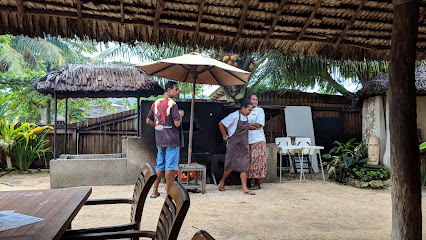
Reefers Restaurant & Rum Bar
Explore the culinary treasures of Vanuatu at Reefers Restaurant & Rum Bar, where local flavors and refreshing rum await in Port Vila.
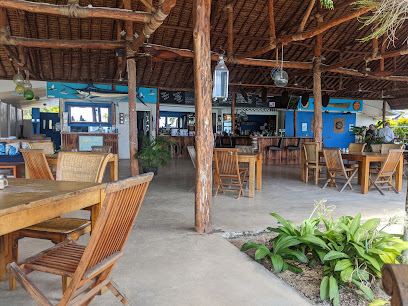
War Horse Saloon
Discover the vibrant nightlife of Port Vila at War Horse Saloon, where locals and travelers unite for fun, drinks, and entertainment.
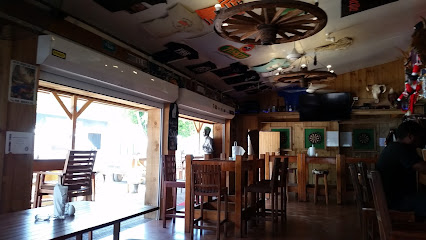
Banyan Beach Bar
Experience the vibrant spirit of Vanuatu at Banyan Beach Bar, where tropical cocktails and breathtaking ocean views await.
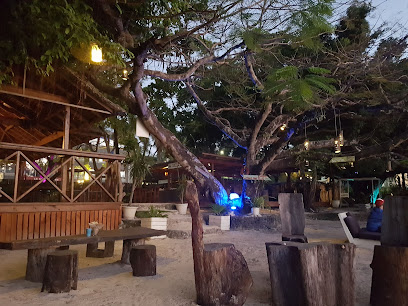
Three Pigs
Discover the vibrant flavors and inviting atmosphere of Three Pigs, a culinary treasure in Port Vila's Nasama Resort, perfect for food lovers and social butterflies.
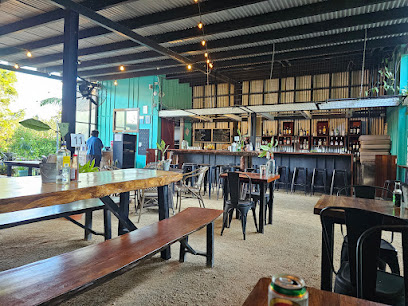
The Retreat Seaside Sports Bar & Resort
Experience the vibrant atmosphere of The Retreat Seaside Sports Bar & Resort, where sports, relaxation, and delicious food come together in Port Vila.
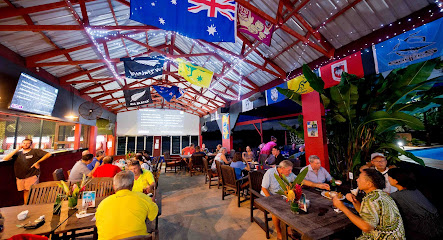
Dany Island
Discover Dany Island, a serene escape in East Santo, where vibrant coral reefs meet exquisite dining at the bar & grill, creating an unforgettable tropical experience.
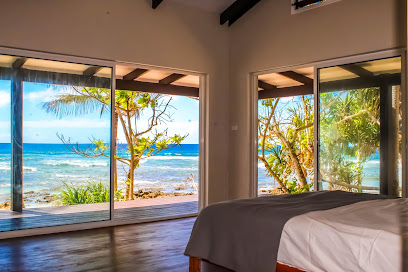
Stone Lounge
Discover Stone Lounge in Port Vila, a vibrant cocktail bar known for its creative drinks and welcoming ambiance, perfect for a relaxing evening.
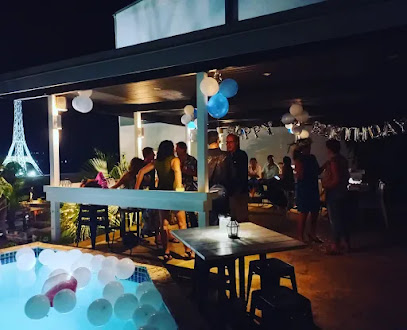
Black Pearl Resort & Spa
Discover tranquility and luxury at Black Pearl Resort & Spa in Saraoutou, where stunning views and exceptional service create the perfect getaway.

El Manaro Kava Bar
Discover the essence of Vanuatu at El Manaro Kava Bar, where traditional kava meets an inviting atmosphere in Port Vila.
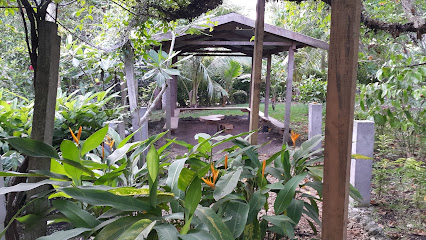
Mango Kava Bar
Discover the essence of Vanuatu at Mango Kava Bar, where relaxation meets tradition in a vibrant tropical setting.
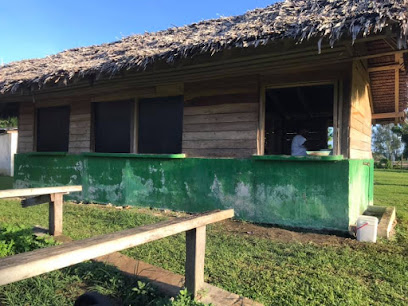
Jill’s Restaurant
Discover the culinary treasures of Vanuatu at Jill’s Restaurant, where local flavors meet international flair in a stunning island setting.

WW2 Million Dollar Point Bar & Cafe
Experience the rich history and breathtaking views at WW2 Million Dollar Point Bar & Cafe in Santo, Vanuatu, a perfect blend of relaxation and culture.
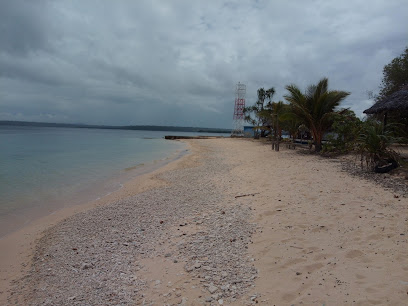
Temperere Kava bar
Experience the authentic taste of Vanuatu with traditional kava at Temperere Kava Bar in Luganville, the perfect spot for relaxation and cultural immersion.

Local Phrases about Penama Province
-
- HelloHalo
[ha-lo] - GoodbyeBubye
[bu-bye] - YesIa
[ya] - NoTale
[ta-le] - Please/You're welcomePlis
[plees] - Thank youTankiu
[tan-kyoo] - Excuse me/SorrySori
[so-ree] - How are you?Yu stap gut?
[yoo stap goot] - Fine. And you?Gut. Mo yu?
[goot. moh yoo] - Do you speak English?Yu save toktok long Inglish?
[yoo sa-veh tok-tok long in-glish] - I don't understandMi no save save
[mee no sa-veh sa-veh]
- HelloHalo
-
- I'd like to see the menu, pleaseMi wantem lukluk long menu, plis
[mee wan-tem look-look long men-oo, plees] - I don't eat meatMi no kaikai mit
[mee no kai-kai meet] - Cheers!Manari!
[mah-nah-ree] - I would like to pay, pleaseMi wantem bayem, plis
[mee wan-tem bah-yem, plees]
- I'd like to see the menu, pleaseMi wantem lukluk long menu, plis
-
- Help!Helpem!
[help-em] - Go away!Go lusan!
[go loo-sahn] - Call the Police!Kolem Polis!
[kol-em po-lees] - Call a doctor!Kolem dokta!
[kol-em dok-tah] - I'm lostMi lusan
[mee loo-sahn] - I'm illMi sik
[mee seek]
- Help!Helpem!
-
- I'd like to buy...Mi wantem baem...
[mee wan-tem bah-em...] - I'm just lookingMi jas lukluk nomo
[mee jas look-look no-moh] - How much is it?Hao moa hemi costem?
[hao moh-ah hem-ee cost-em] - That's too expensiveHem i moa bigfala
[hem ee moh-ah big-fah-lah] - Can you lower the price?Yu save fo lukaotem praes?
[yoo sa-veh fo loo-kah-oh-tem price]
- I'd like to buy...Mi wantem baem...
-
- What time is it?I hao taim hemi nao?
[ee hao time hem-ee now] - It's one o'clockHemi wan taim
[hem-ee wahn time] - Half past (10)Hemi hapfala (10)
[hem-ee hahp-fah-lah (10)] - MorningMonin
[moh-neen] - AfternoonAftanun
[aftah-noon] - EveningIvinin
[ee-vee-neen] - YesterdayDei wea
[day way-ah] - TodayDei
[day] - TomorrowTamoro
[tah-moh-roh] - 1Wan
[wahn] - 2Tu
[too] - 3Tri
[tree] - 4Fo
[foh] - 5Faiv
[fah-eev] - 6Siks
[siks] - 7Seven
[seh-ven] - 8Eit
[ate] - 9Nain
[nayn] - 10Ten
[ten]
- What time is it?I hao taim hemi nao?
-
- Where's a/the...?Wea hemi...?
[way-ah hem-ee] - What's the address?Adres hemi wea?
[ad-dress hem-ee way-ah] - Can you show me (on the map)?Yu save fo soem mi (long map)?
[yoo sa-veh fo so-em mee (long map)] - When's the next (bus)?Wea taim hemi nex (bas)?
[way-ah time hem-ee neks (bahs)] - A ticket (to ....)Wan tiket (long ....)
[wahn tee-ket (long)]
- Where's a/the...?Wea hemi...?
History of Penama Province
-
Penama Province, located in the northeastern part of Vanuatu, is rich in indigenous heritage. The province is primarily inhabited by the Melanesian people, who have settled in the area for thousands of years. The early settlers were skilled navigators and fishermen, and their traditional customs, languages, and practices are still evident today. The oral histories and legends passed down through generations provide a deep insight into the ancestral roots and cultural richness of the region.
-
The first known European to set foot on the islands of Penama Province was the Spanish explorer Pedro Fernández de Quirós in the early 17th century. He named the archipelago 'Austrialia del Espiritu Santo'. Throughout the 18th and 19th centuries, the islands saw sporadic contact with European explorers and traders, which significantly impacted local societies. The introduction of new goods and the influence of European culture brought profound changes, but also led to conflicts and resistance from the indigenous communities.
-
In the mid-19th century, Christian missionaries arrived in Penama Province, determined to convert the local population. The introduction of Christianity was met with mixed reactions; while some communities embraced the new religion, others resisted, leading to periods of tension and conflict. Over time, however, the missionaries managed to establish schools, churches, and health services, which contributed to significant social changes in the province. Today, Christianity is a major religion in the region, coexisting with traditional beliefs and practices.
-
The late 19th century was marked by the dark period of 'blackbirding', where many inhabitants of Penama Province were forcibly taken to work on plantations in Australia, Fiji, and other parts of the Pacific. This practice led to a significant loss of population and disruption of local societies. The traumatic memories of blackbirding are still remembered in the oral histories of the region, serving as a somber reminder of the exploitation faced by the islanders.
-
During World War II, Penama Province, like much of Vanuatu, was strategically significant due to its location in the Pacific. The islands were used as a base by Allied forces, particularly the United States, which established military installations and airstrips. The presence of foreign troops brought new technologies, infrastructure, and cultural influences to the region. After the war, many of these installations were abandoned, but the wartime legacy remains visible in the form of relics and monuments scattered across the islands.
-
Penama Province played a role in Vanuatu's struggle for independence from colonial rule. Before independence, the region was part of the Anglo-French Condominium, a unique colonial arrangement where both Britain and France jointly administered the islands. The push for self-governance gained momentum in the 1970s, leading to the establishment of the New Hebrides National Party, later known as the Vanua'aku Party. Vanuatu ultimately achieved independence on July 30, 1980, with Penama Province becoming an integral part of the new nation.
-
In recent decades, there has been a significant emphasis on the revival and preservation of traditional culture in Penama Province. Efforts have been made to document and celebrate local customs, languages, and practices. Festivals such as the Back to My Roots Festival in Pentecost Island highlight traditional dances, music, and rituals. These cultural initiatives not only foster a sense of identity and pride among the local population but also attract visitors eager to experience the rich heritage of the province.
Penama Province Essentials
-
Penama Province is located in the northern part of Vanuatu. The nearest airport is Sara Airport on Pentecost Island, and Lonorore Airport on Ambrym Island. To reach Penama, you can take a domestic flight from Bauerfield International Airport in Port Vila, the capital of Vanuatu. Flights are operated by local airlines such as Air Vanuatu. From the airports, you can use boat transfers or small planes to travel between the islands in the province.
-
The primary mode of transportation within Penama Province is by small boats, local ferries, and small planes. On land, local transportation includes trucks, minibuses, and taxis. Roads are often unpaved and can be challenging to navigate, so hiring a local guide is advisable. Renting a car is not common due to the terrain and road conditions.
-
The official currency in Vanuatu is the Vanuatu Vatu (VUV). Credit cards are accepted in some hotels and larger businesses, but it is advisable to carry cash, especially when traveling to smaller villages and remote areas. ATMs are available in larger towns, but it is prudent to withdraw sufficient cash before traveling to more isolated locations.
-
Penama Province is generally safe for tourists. However, standard travel precautions should be taken. Avoid walking alone at night and keep an eye on your belongings in crowded places. While crime rates targeting tourists are low, it is always best to stay vigilant and aware of your surroundings. There are no specific high-crime areas in Penama Province.
-
In case of emergency, dial 112 for immediate assistance. Local police stations are available in larger towns. For medical emergencies, there are health clinics in major villages, but for serious health issues, it is advisable to seek medical attention in Port Vila. Ensure you have travel insurance that covers medical emergencies.
-
Fashion: Do dress modestly, especially in rural areas, to show respect for local customs. Avoid wearing revealing clothing. Religion: Do respect local customs and traditions. Always ask for permission before taking photos of people or religious sites. Public Transport: Do be respectful to drivers and fellow passengers. Don’t eat or drink on public transport. Greetings: Do greet people with a smile or a slight nod. A handshake is also acceptable. Eating & Drinking: Do try local dishes and accept food offerings graciously. Don’t refuse hospitality, as it is considered impolite.
-
To experience Penama Province like a local, visit the local markets where you can buy fresh produce and traditional handicrafts. Engage with local villagers who are often friendly and willing to share stories about their culture and traditions. Don't miss the land diving ceremony on Pentecost Island, a unique cultural event. Participate in local festivals and try traditional kava, a ceremonial drink made from the root of the kava plant.
Nearby Cities to Penama Province
-
Things To Do in Norsup
-
Things To Do in Lakatoro
-
Things To Do in Lamap
-
Things To Do in Sola
-
Things To Do in Port Vila
-
Things To Do in Lenakel
-
Things To Do in Isangel
-
Things To Do in Lata
-
Things To Do in Hienghène
-
Things To Do in Tadine
-
Things To Do in Bourail
-
Things To Do in La Foa
-
Things To Do in Nouméa
-
Things To Do in Lautoka
-
Things To Do in Nadi







